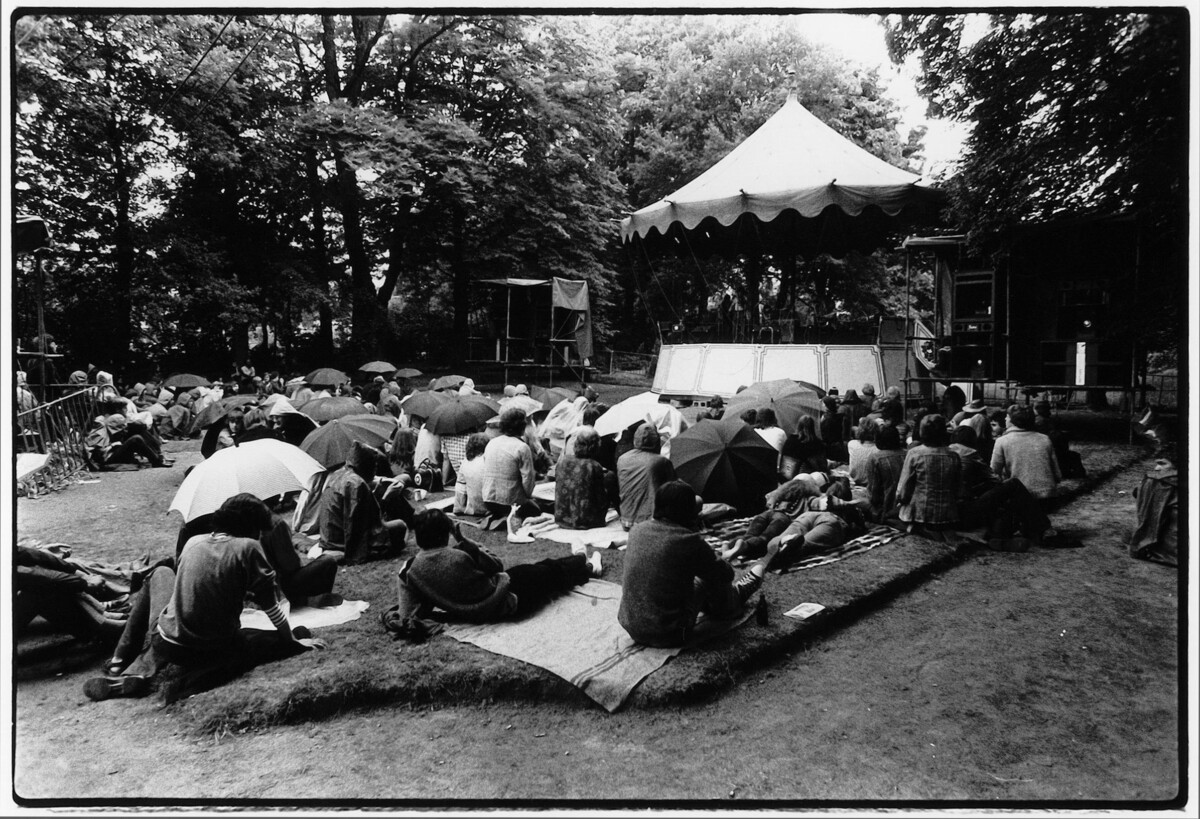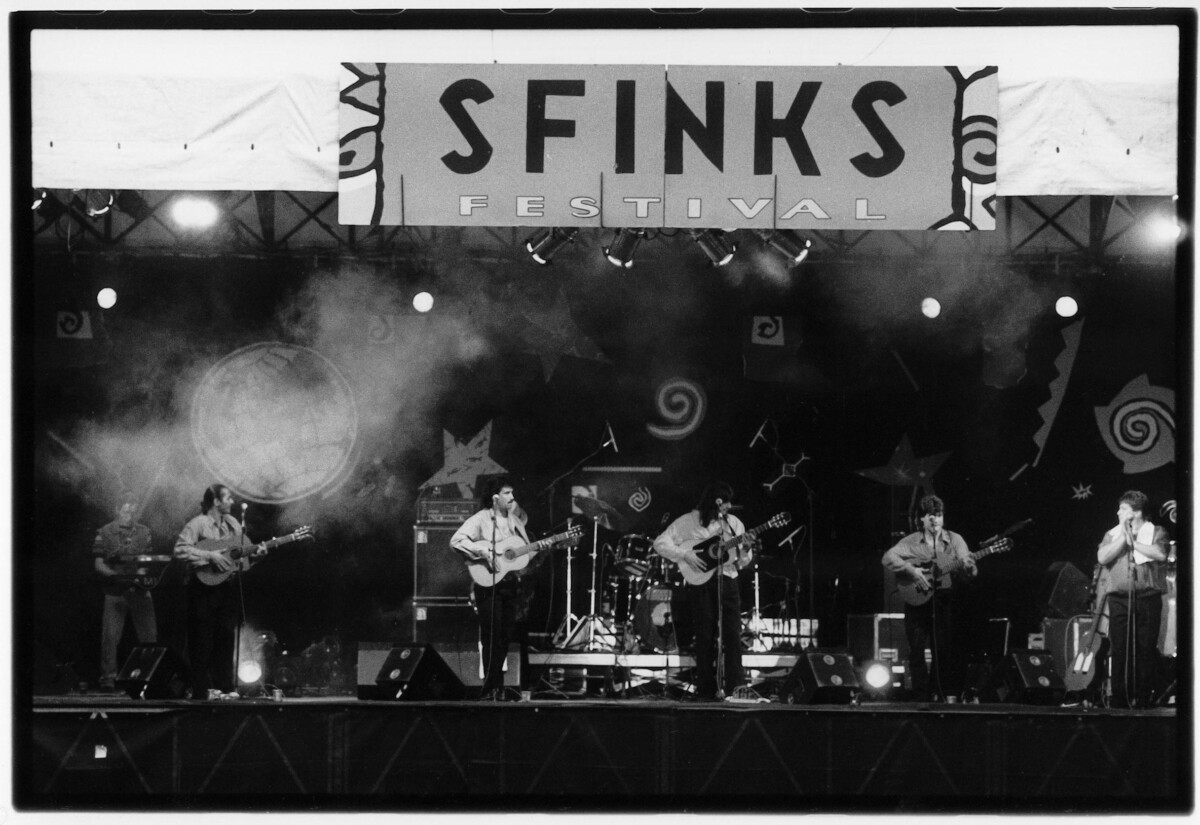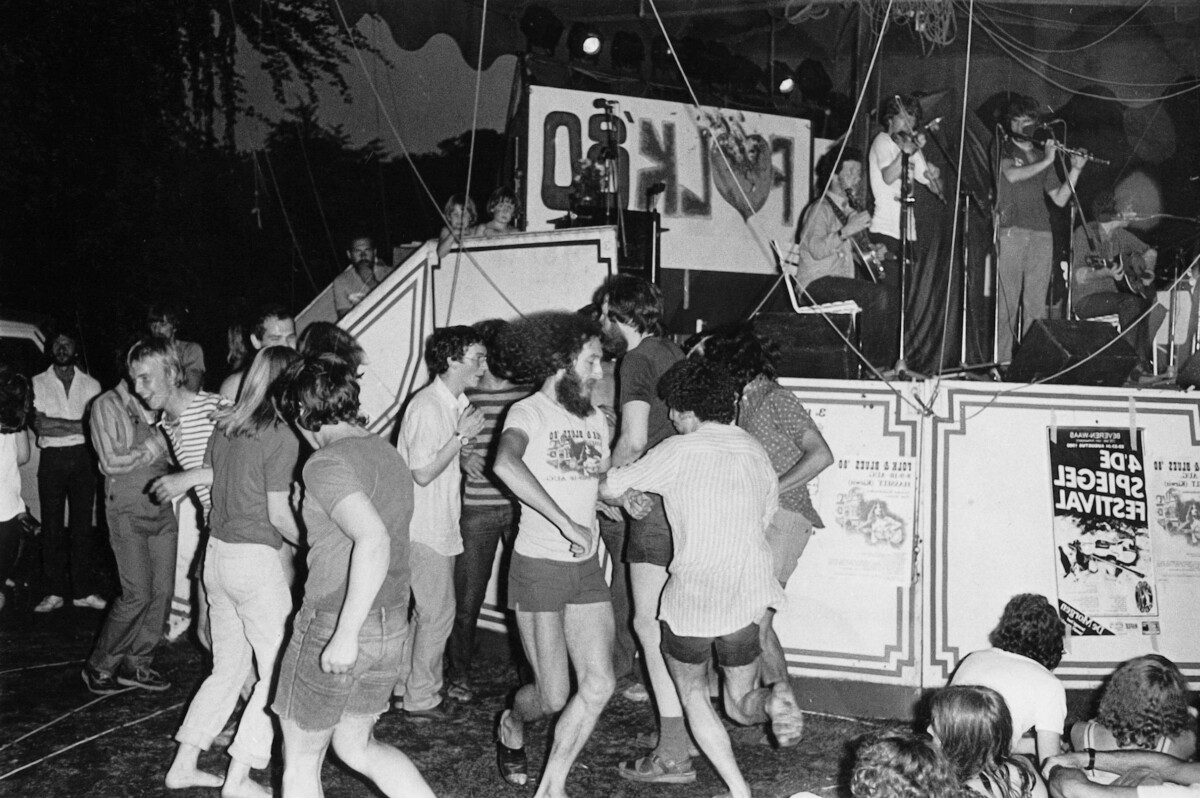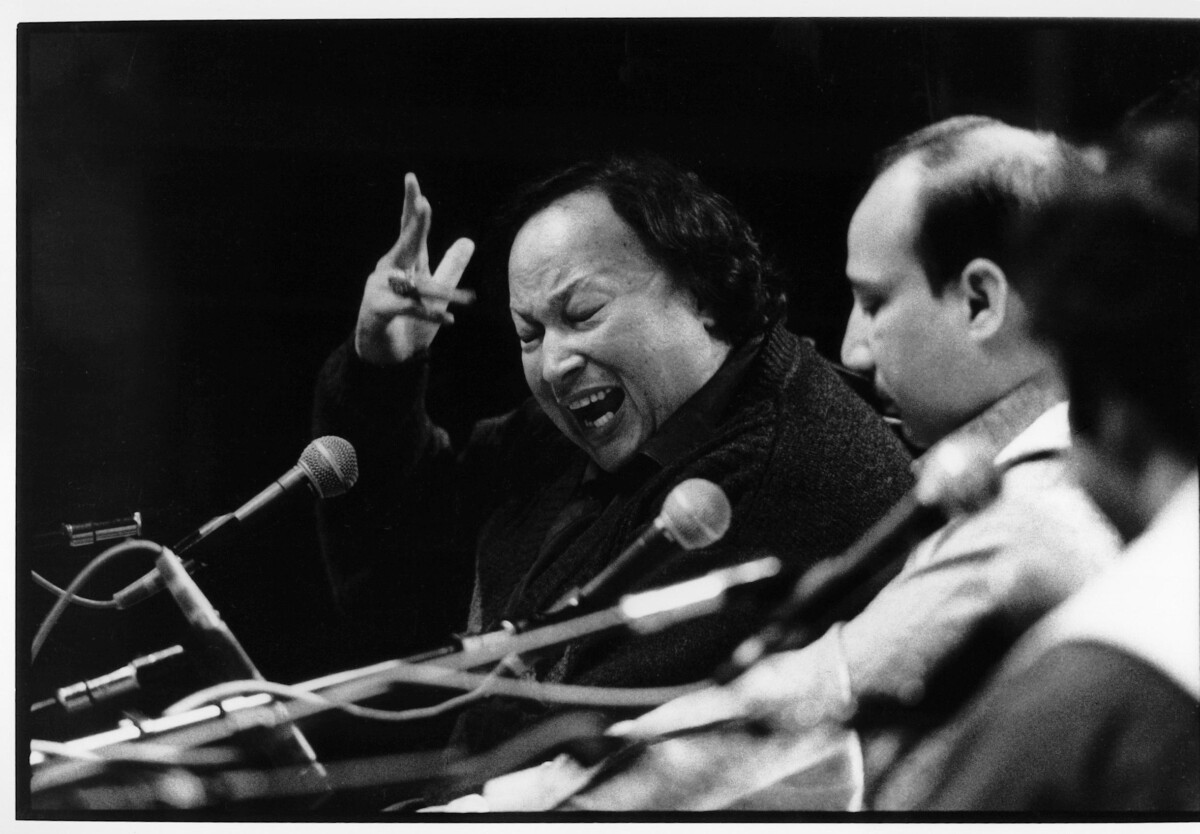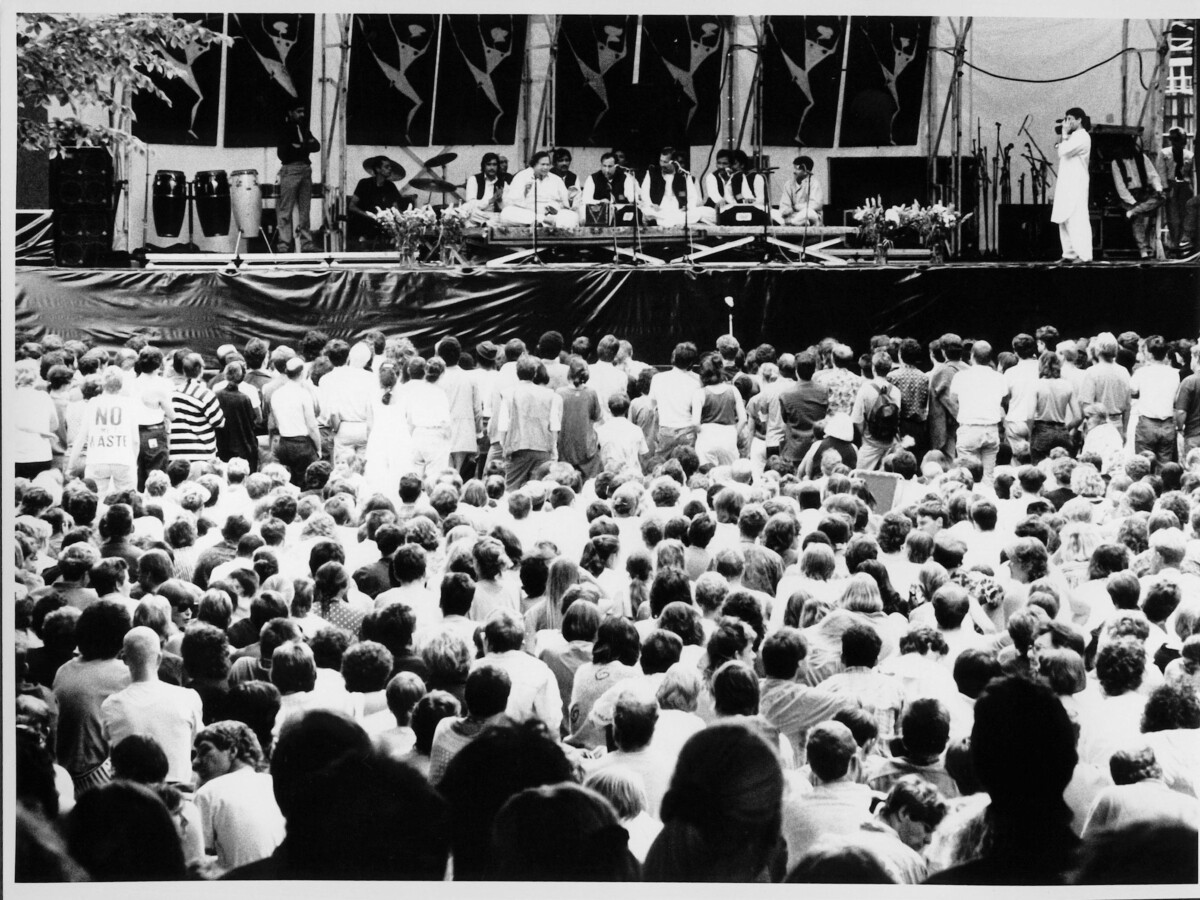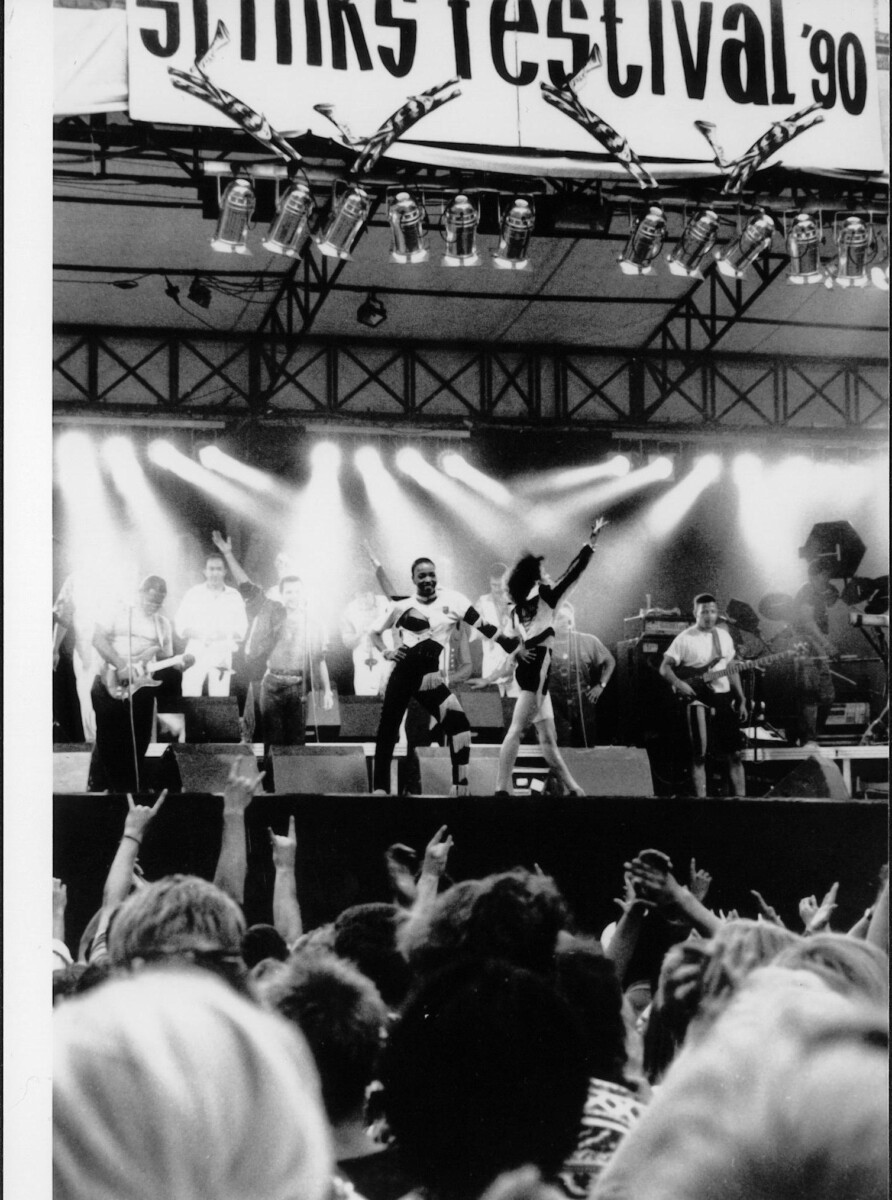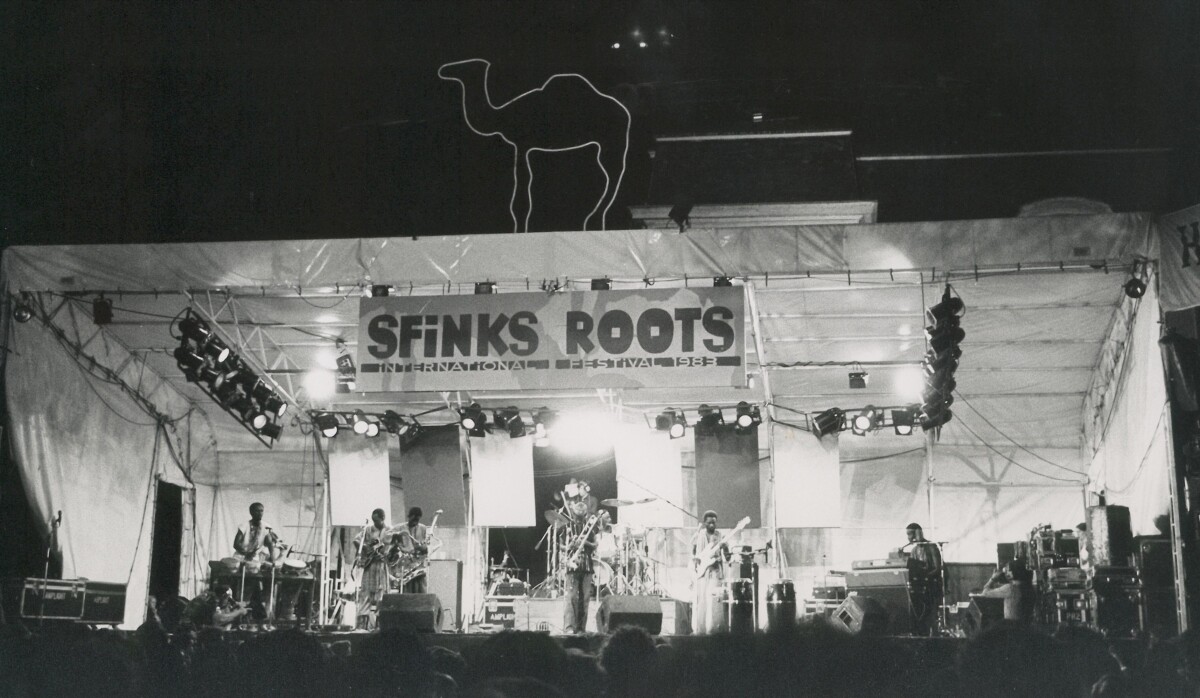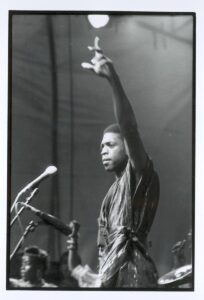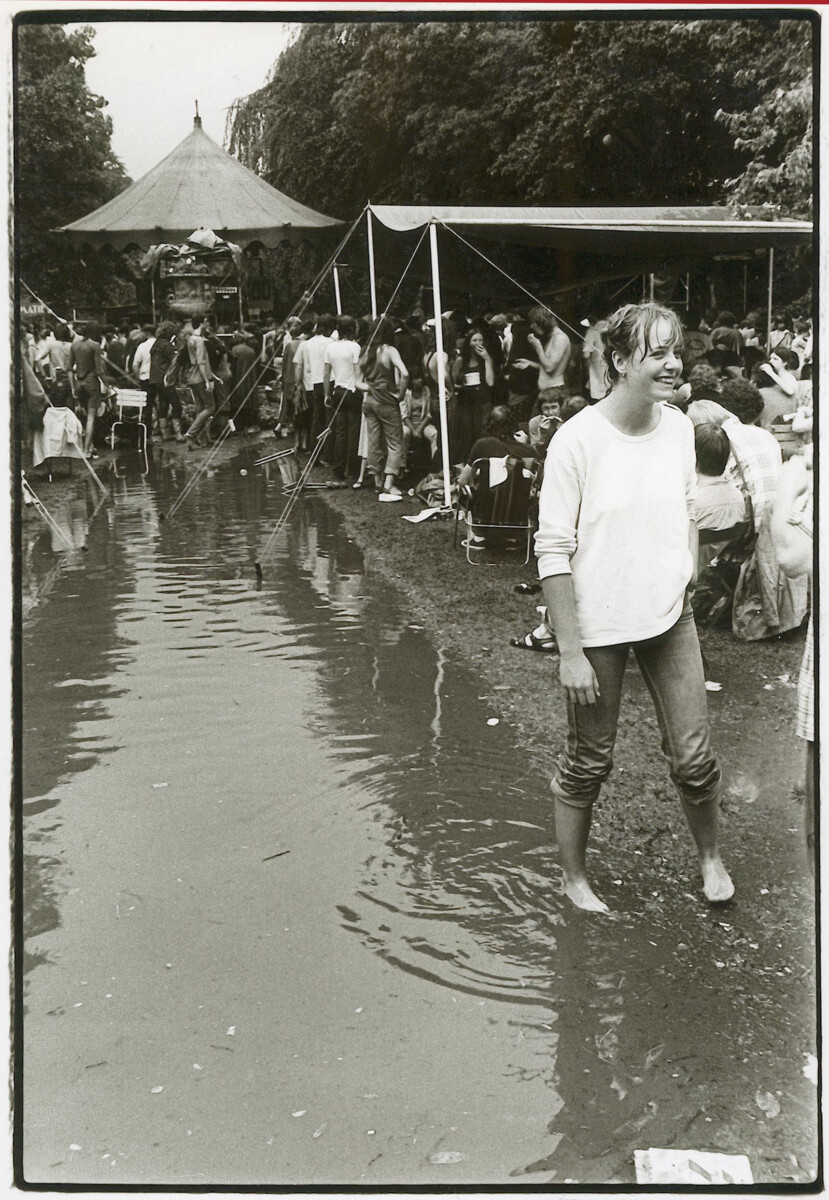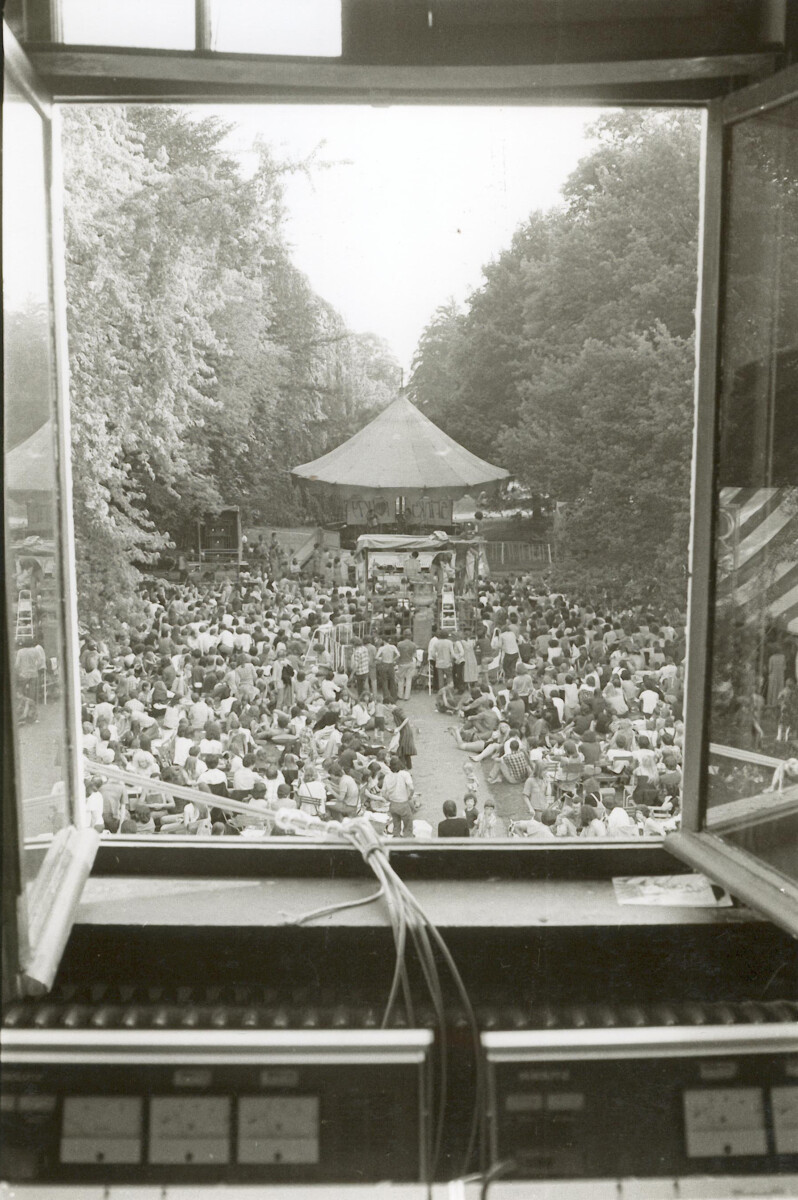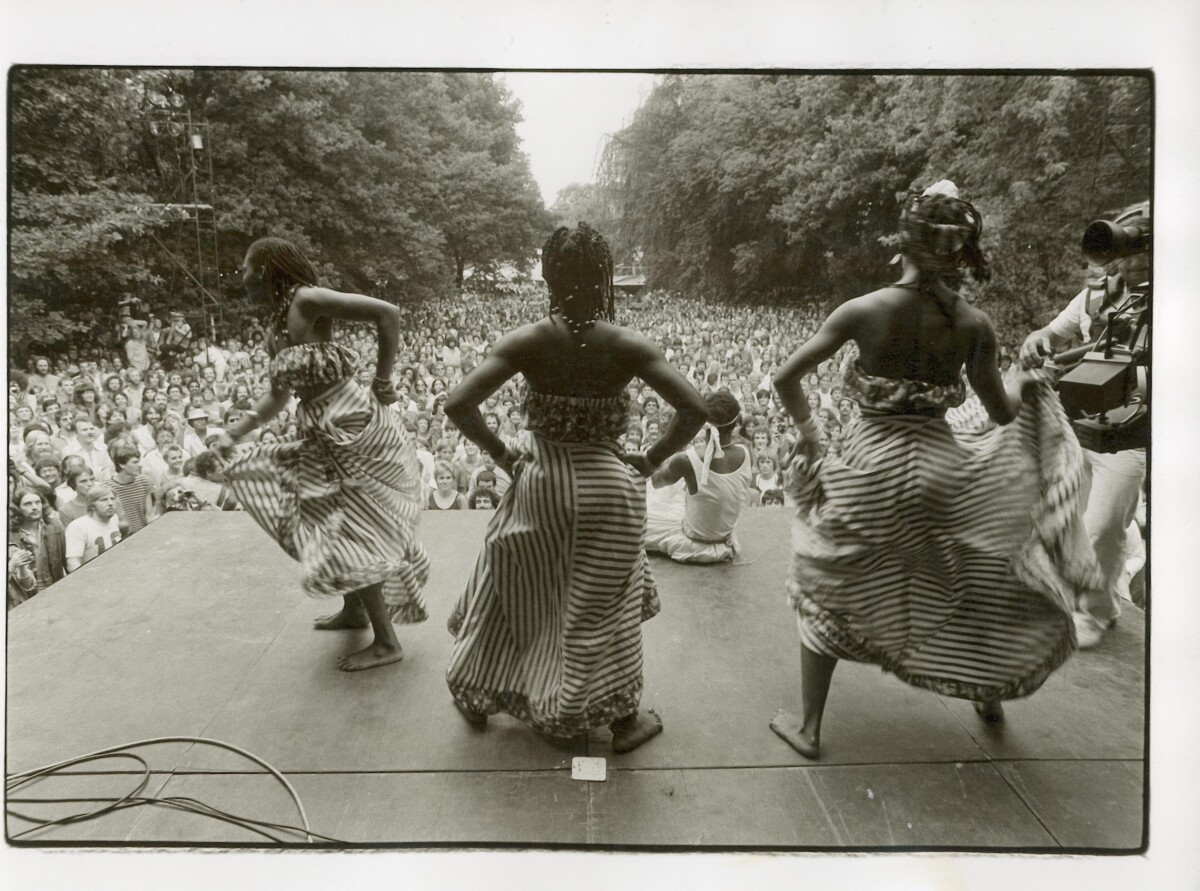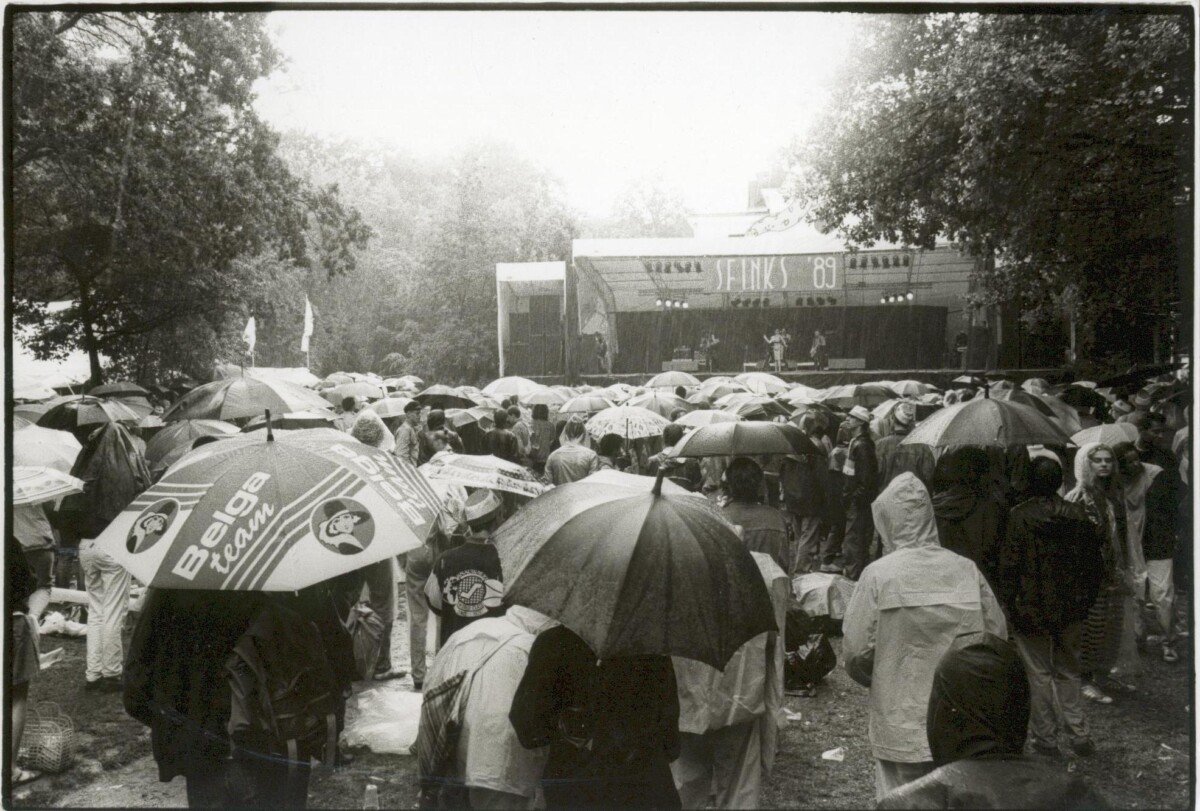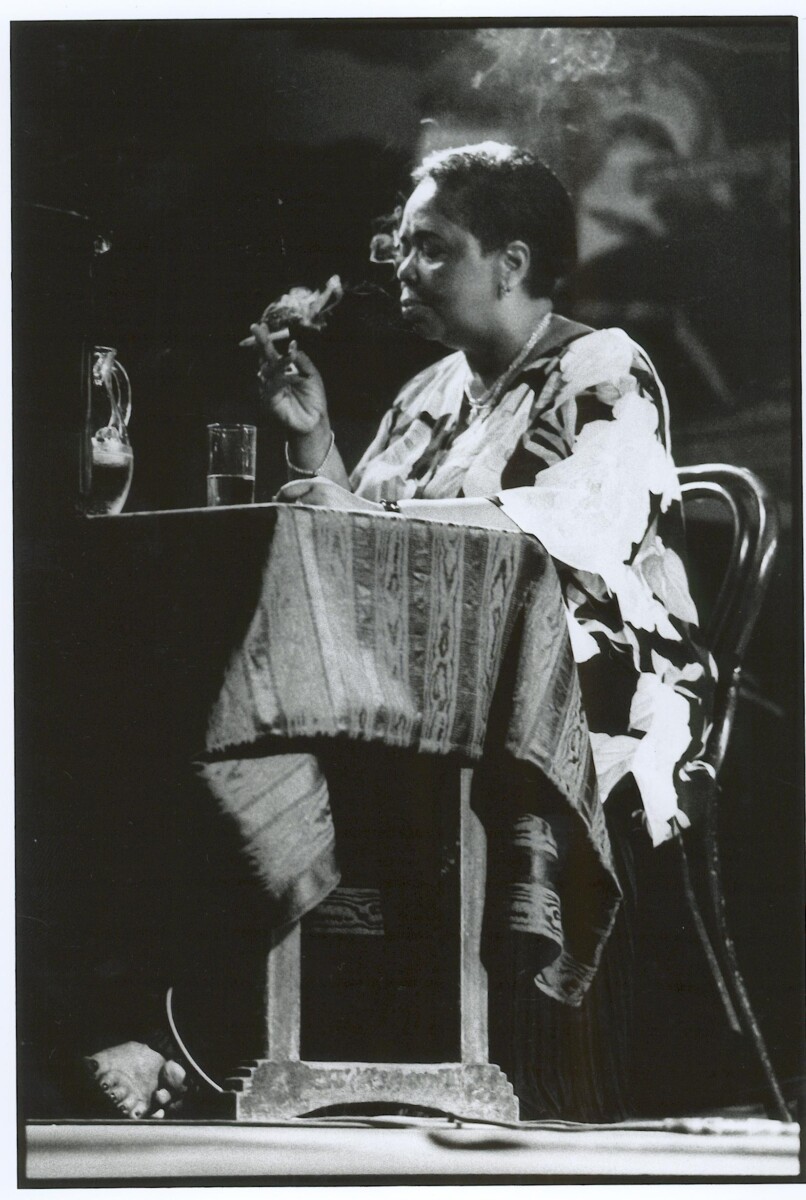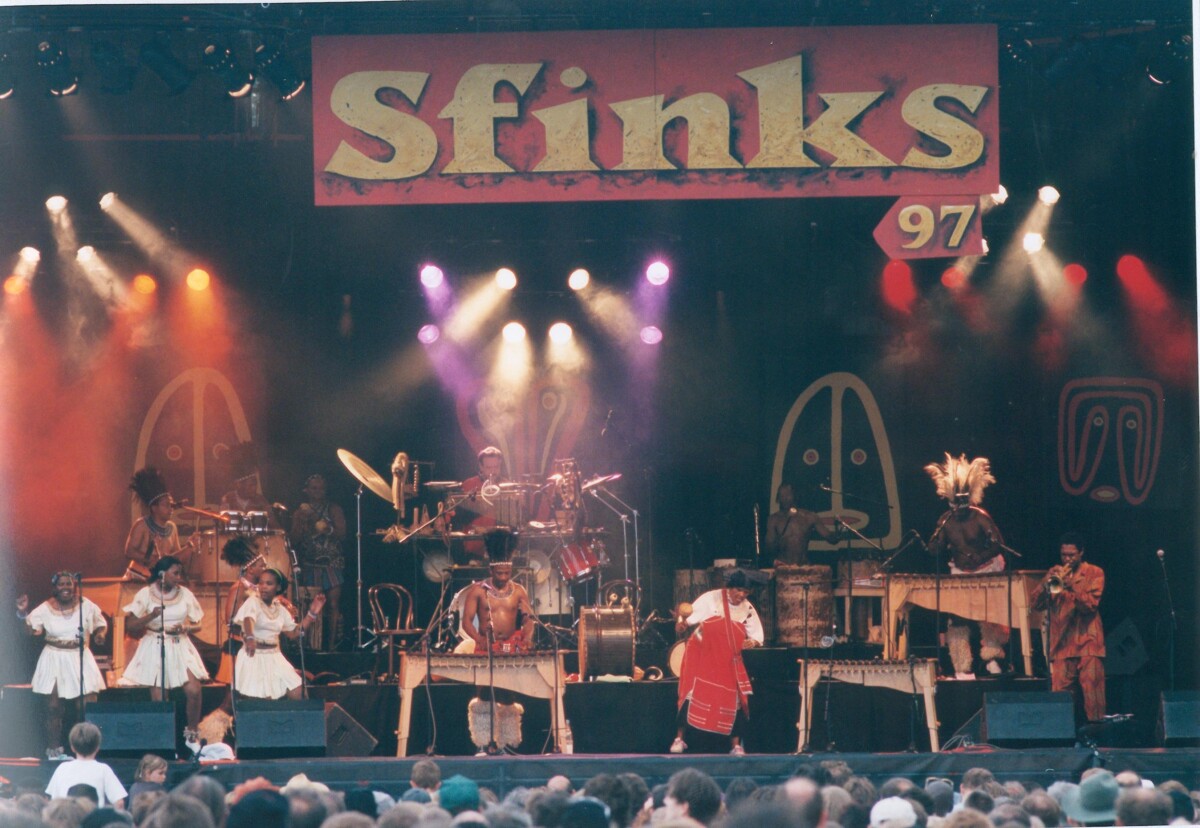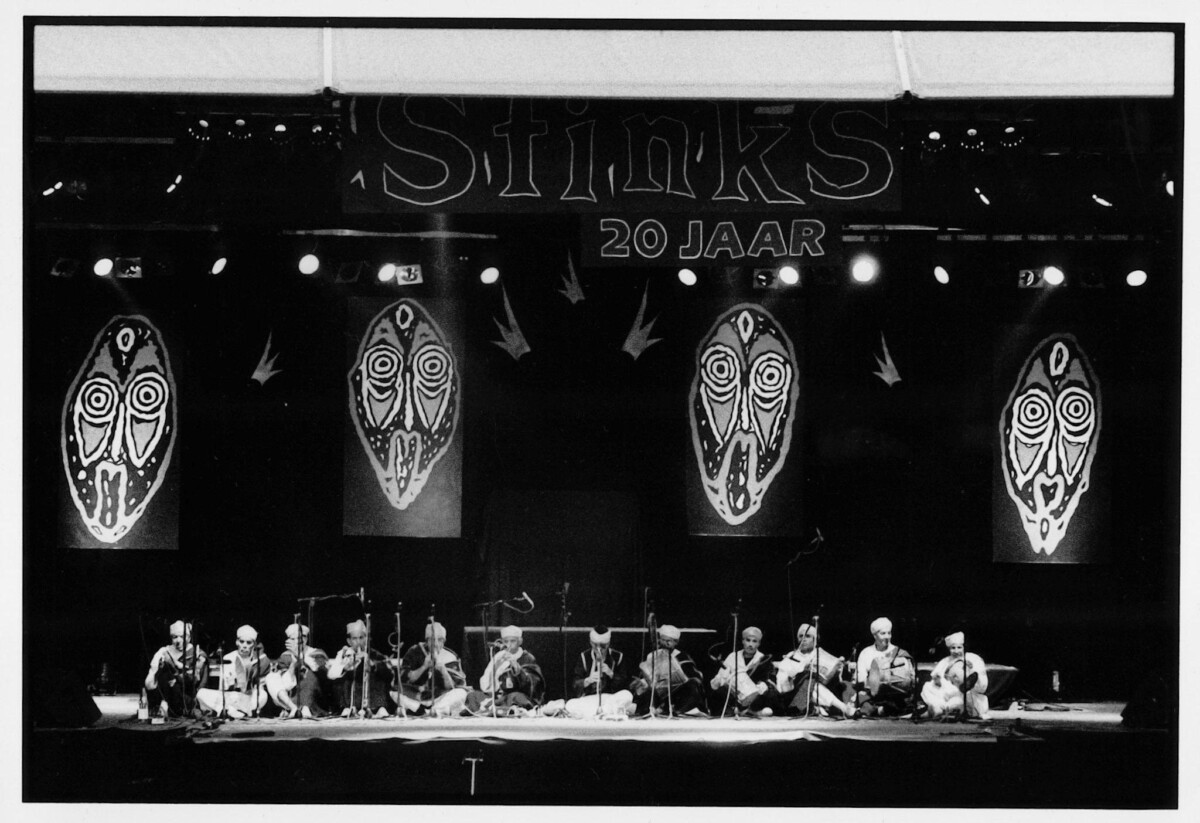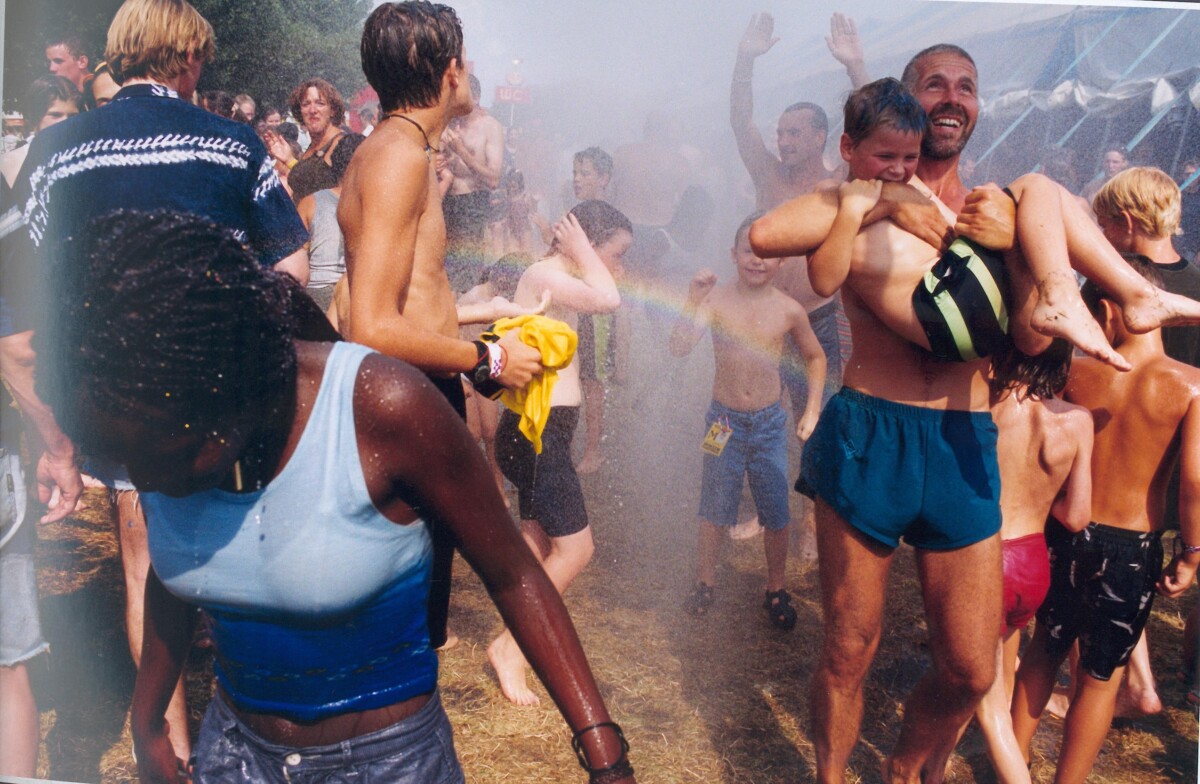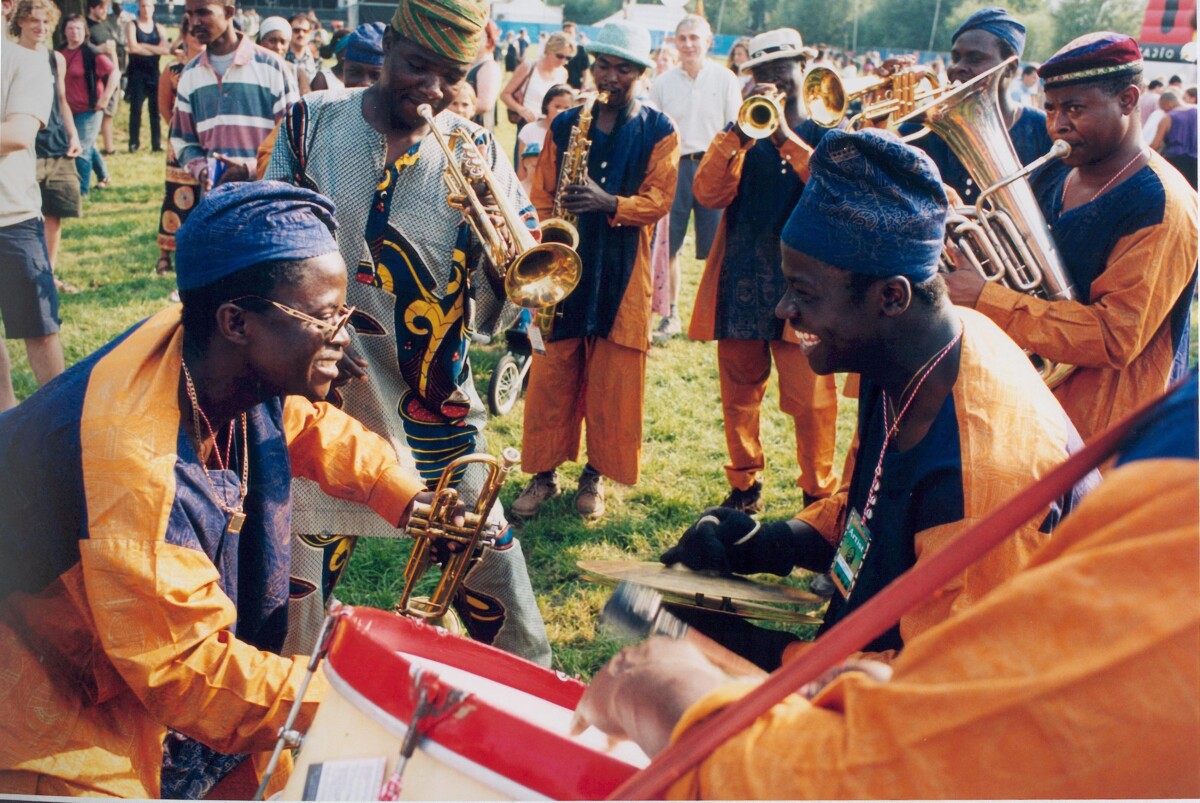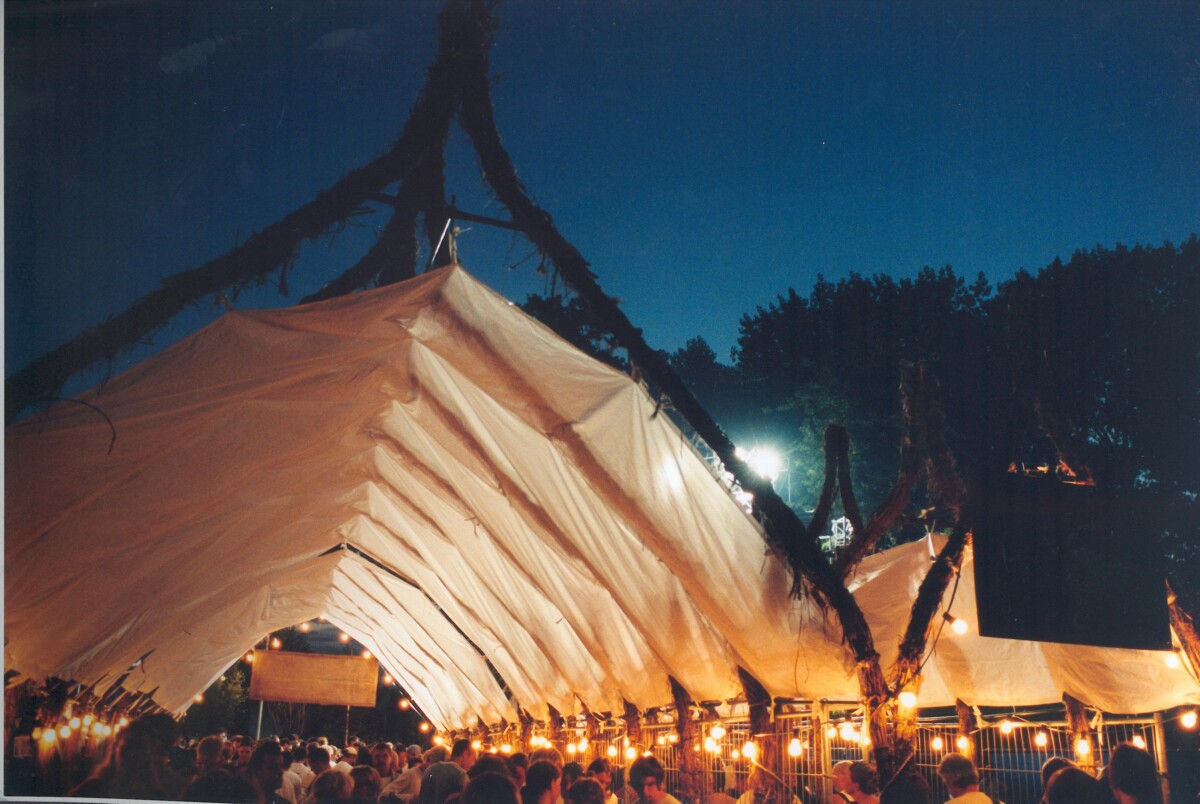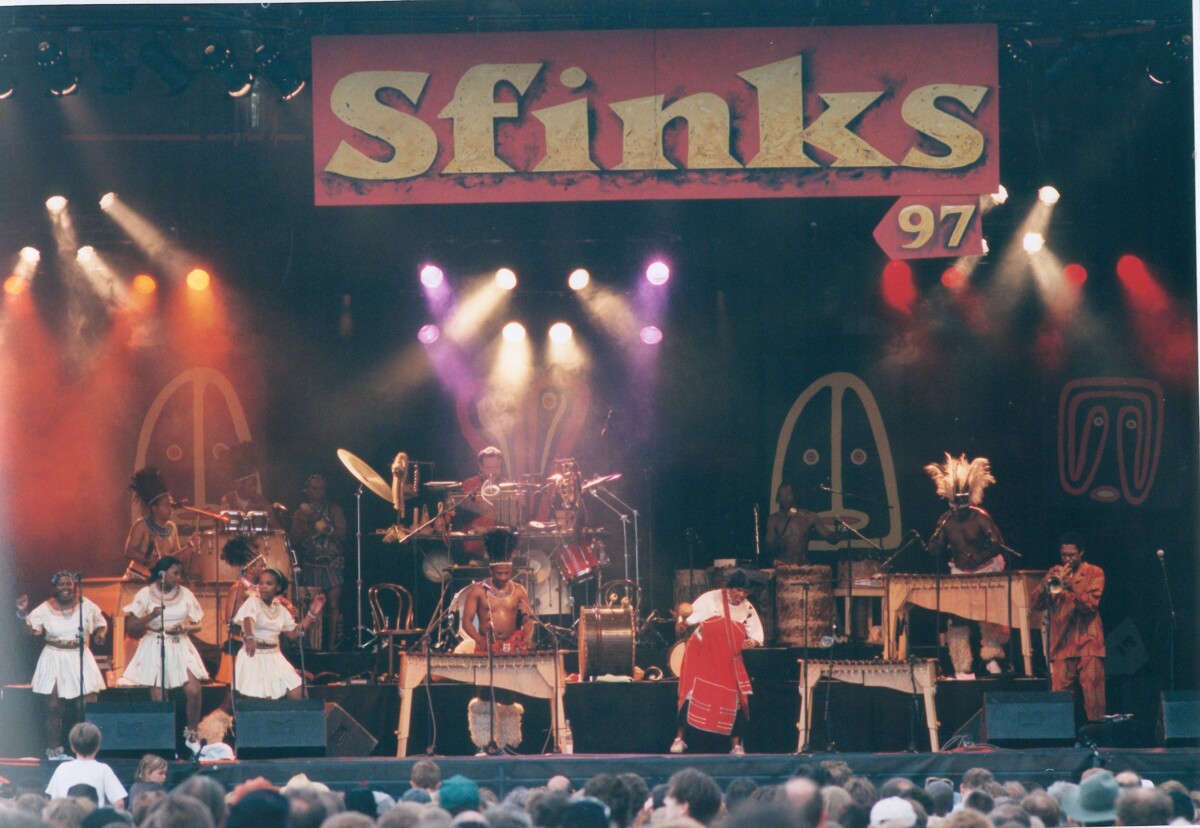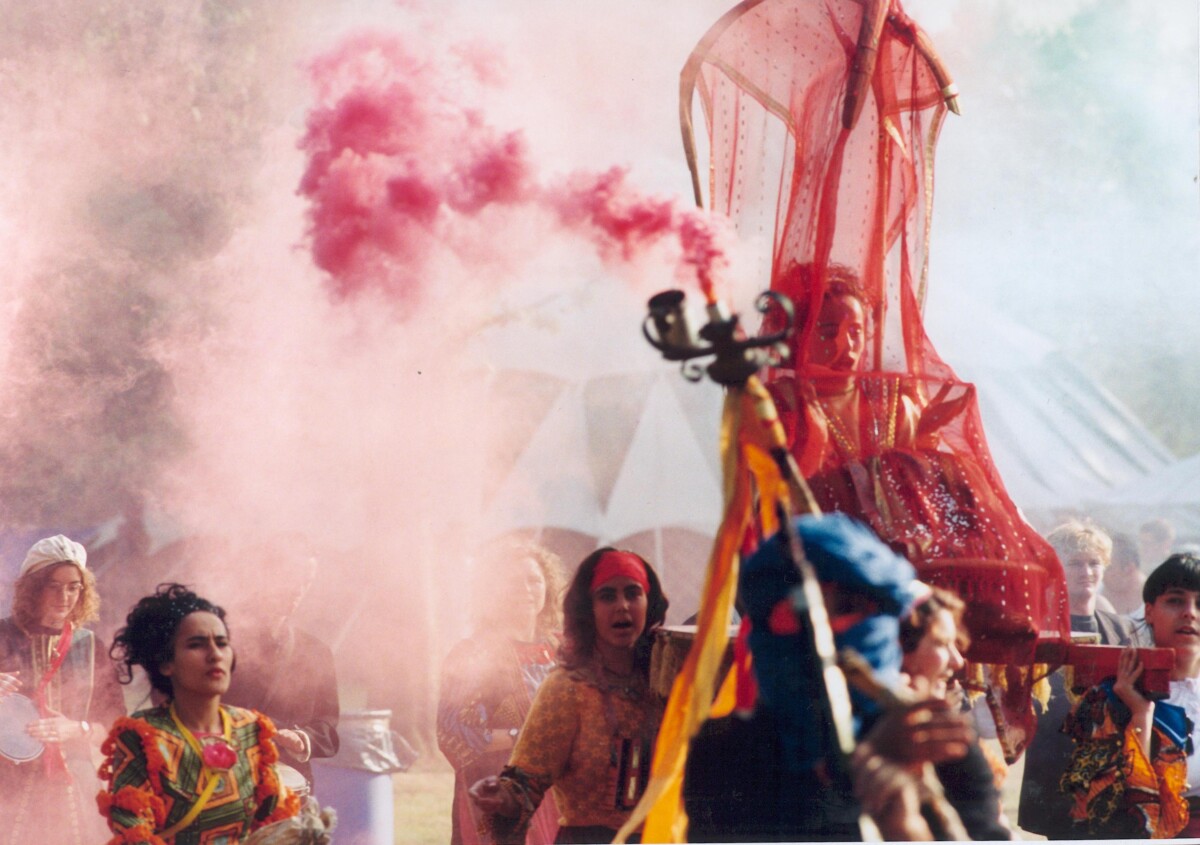SFINKS – A LITTLE HISTORY
April 1975: creation and foundation
‘Sfinks vzw, vereniging voor Kunstambachten, Informatie en Kultuur’, housed in villa “Les Clematites” in Heuvelstraat 25 in Boechout, became in a short period of time a legend in and around Antwerp. Many enthusiastic coworkers joined the team and organised all kinds of activities, from initiatives for the elderly and persons with less-ability to educational projects.
1976 – 1981: the first festival – Sfinks Folk
Sfinks starts as a small folk festival around the kiosk of the local school. No big famous names, but interesting groups from Belgium and foreign lands. The festival is known to be the most cozy one in Flanders, and keeping it intimate and small is a conscious choice. Apart from the traditional Anglo-Saxon folk there is a fascination for Latin-American folk.
1982 – 1992: a little bigger – Sfinks Roots
The festival presents an exotic program. Groups as Youssou N’Dour, Idir, Astor Piazzolla, Sun Ra Orkestra, Gilberto Gil, Nusrat Fateh Ali Khan, Cheb Khaled, Femi Kuti and Ruben Blades play at Sfinks Roots (often their first show in Belgium). In 1992 the festival takes place for the last time at the sold-out Sfinks park.
1993 – 2000: more stages, more days, more Sfinks
Growing in popularity and succes, the festival moves to ‘Molenveld’ in Boechout, presenting four days of festival and an divers program. With bands as I Muvrini, Manu Dibango, Alpha Blondy, Goran Bregovic ,… on stage and continuously opening up to more genres and styles, the festival grows in size, stages and musical explorations. Ritualistic and classical music find their place within the program, as well as music from more obscure regions in the world.
2001 – 2012: music of the world in the world today
Sfinks connects to the world of youngsters with a Groove-stage for EDM from the world. It rethinks its position in a new world where ‘world music’ becomes music of a global community, or just ‘music’. In 2008 Sfinks is renamed ‘Sfinks Mixed’, a festival of three days and openness to other disciplines within the performing arts. But music stays the central common theme and the term ‘world-music’ is left behind to the annals of history.
2013 – …..
Sfinks Mixed festival becomes a free festival, opening up to a larger public and more divers program. Apart from musical discoveries from across the world there is also a growing interest in global pop from close or closer-by. This was a jump in unknown territories and welcomed by the big crowd. Sfinks looks for a connection with young families and youngsters, also with mixed cultural backgrounds. The DJ-program expands and the Kidz Village grows into a little city. Sfinks welcomed almost 80.000 visitors in 2014 and celebrated it’s 40th birthday (with a free party, of course) in 2015.
Some numbers:
Between 1976 and 2014 Sfinks festival welcomed a total sum of 1.125.700 visitors, hosted 1.076 different bands on stage, and programmed 1.198 concerts.
